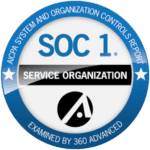Did you know that companies that implement automated freight audit processes can reduce their freight costs by up to 10%? According to a study by Capgemini, 82% of shippers and 90% of third-party logistics providers report improved financial performance from utilizing Transportation Management Systems (TMS) . If you’re looking to streamline your freight audit and payment process, look no further! Here are the top best practices that businesses use to ensure their freight auditing and payments are transparent and efficient.
Are you looking to streamline your freight audit and payment process? Well, look no further! We’ve assembled the top best practices that businesses use to ensure their freight auditing and payments are transparent and working in their favor.
By implementing this essential insight into your processes, you can save time and money with a properly organized audit trail — allowing for smoother transactions between vendors and customers alike.
Discover what it takes to ensure freight bills have accurate rates guaranteed from end-to-end while keeping a secure track record of any discrepancies during the process.
Read on for six essential tips when tackling your organization’s freight audit and payment needs.
1. Establish a Process for Auditing Freight Documents
To maintain transparency and accuracy in your freight operations, it is crucial to establish a reliable process for auditing freight documents. This process acts as a safeguard, ensuring that all freight bills are accurate and free from errors or potential fraud. Here’s what you can do:
1. Define Metrics: Begin by defining the metrics you will use to measure the accuracy and compliance of freight documents. These could include the rate of discrepancies, the accuracy of freight classifications, and compliance with contractual terms.
2. Train Your Team: Train your team on these metrics and how to accurately audit freight documents against them. Provide them with checklists and other resources to ensure a consistent audit process.
3. Regular Review: Establish a schedule for regular reviews of freight documents. This could be weekly, monthly, or quarterly, depending on the volume of documents and the resources available.
4. Use Technology: Consider investing in freight audit software. It can automate much of the process and provide analytics that can help identify trends and potential areas of concern.
5. Address Discrepancies: Have a process in place to address any discrepancies that are found. It should include communicating with vendors, adjusting payments as necessary, and updating processes to prevent the discrepancy from recurring.
6. Maintain Documentation: Keep a record of all audits, including the results and any actions taken. This documentation will be vital for any future audits and for demonstrating compliance.
2. Leverage Automation and Cloud-Based Technology for Streamlined Auditing
In the digital age, aligning your freight auditing process with advanced technology can bring about significant enhancements in efficiency, accuracy, and cost-effectiveness. Here’s how you can leverage automation and cloud-based technology for a seamless audit experience:
Automation Tools: Utilize freight audit and payment automation tools to speed up the audit process, reduce human error, and provide real-time updates on discrepancies. These tools can automatically cross-verify freight bills against contracts and tariffs, flagging any inconsistencies for further review.
Cloud-Based Platforms: Cloud-based freight audit platforms offer the advantage of centralized data, accessible from anywhere at any time. It makes it easier to manage and review freight documents, especially for teams working remotely or across different locations.
Real-Time Analytics: Many automation tools offer real-time analytics as part of their functionality. It provides invaluable insights into your freight operations, enabling you to identify trends, monitor key metrics, and take proactive action to address potential issues.
Integration Capabilities: Look for technology solutions that can integrate with your existing systems. It can streamline data transfer, reduce the risk of data errors, and ensure a more holistic view of your freight operations.
Our Pioneer TMS 2.0 is a futuristic automation tool that you can use to take care of all these tasks seamlessly.
By harnessing the power of automation and cloud technology, you can revolutionize your freight audit process, achieving greater efficiency, transparency, and savings.
3. Utilize Advanced Tools and Technologies to Expeditiously Identify Discrepancies
In an era of rapid technological progress, leveraging the latest tools and technologies to quickly identify discrepancies can revolutionize your freight audit process. One game-changing approach is the use of AI-powered software, which can automatically analyze freight bills in real-time and detect errors based on predefined parameters.
Additionally, employing sophisticated data mining techniques can uncover hidden patterns in freight documents that may indicate discrepancies, ensuring accuracy beyond what manual audits can achieve. Predictive analytics tools provide the ability to forecast potential discrepancies based on historical data and trend analysis, allowing for proactive issue anticipation.
Lastly, blockchain technology offers a secure and transparent platform for recording freight transactions, facilitating faster and more accurate discrepancy detection. By embracing these advanced tools and technologies, you can expedite the identification of discrepancies and optimize your freight audit process for maximum efficiency.
4. Create Clear Payment Policies and Procedures to Eliminate Confusion Surrounding Payment Terms
The key to eliminating confusion regarding payment terms lies in the creation of clear payment policies and procedures. These guidelines serve as the bedrock of your freight audit and payment process, ensuring all stakeholders are on the same page.
By standardizing payment terms for all your freights, such as ‘payment due upon receipt’, ‘net 30’, or ‘net 60’, depending on your company’s financial policies and industry norms, you establish consistency. Make your payment policies easily accessible, whether it’s on your company’s website, within contracts, or through a shared document with vendors.
Define your requirements for invoices, including necessary details, format, and any additional documentation. Clearly outline how discrepancies in freight bills should be reported and handled, providing a point of contact for vendors.
Detail any potential penalties for late payments and the process for handling them to set expectations and reduce late payments. Regularly review and update your payment policies and procedures to ensure they meet the needs of your organization and comply with regulatory changes.
By implementing clear payment policies and procedures, you will foster a more fluid, transparent, and efficient payment process, enhancing your organization’s freight audit and payment operations.
5. Negotiate with Carriers for Better Rates and Cost Savings Opportunities
Securing favorable rates and cost savings is crucial for optimizing your freight audit and payment process. Effective negotiations with carriers play a key role in achieving this. Start by gathering detailed knowledge about your freight needs, such as shipment volumes, frequency, and typical routes, as it can be a powerful negotiating tool. Understanding industry pricing trends and the current market situation can also aid in securing better deals.
Establish a clear line of communication with carriers, discussing your specific needs and concerns. Explore volume-based discounts or long-term contracts for potential savings. Review and negotiate any additional fees or surcharges in your freight bill. Utilize freight audit software to analyze spend and identify areas for savings. Consider using a freight rate comparison tool to ensure competitive rates.
Maintain a positive working relationship with carriers to build trust and goodwill, which can lead to better rates and cost-saving opportunities in the long term. Effective carrier negotiations maximize freight savings and enhance the cost-efficiency of the audit and payment process.
6. Monitor Freight Spend Patterns Over Time to Identify Trends and Areas for Improvement
Effective freight audit and payment management requires diligent monitoring of freight spend patterns. Observing these over time reveals trends and areas for improvement, leading to significant cost savings.
To monitor freight spend effectively, establish a robust data recording system that logs all expenses accurately. Analyze spending on routes, carriers, regions, and seasons to identify recurring overcharges or inefficiencies.
Utilize freight audit software and analytics tools for in-depth analysis. Gain insights into cost-effective routes, discrepancies in freight bills, and benchmark performance against industry standards.
Use predictive analytics to forecast future trends based on historical data, aiding strategic planning and proactive decision-making.
Establish a regular review schedule to monitor trends and make necessary adjustments. Renegotiate contracts, switch to cost-effective routes, or address systemic discrepancies.
By closely monitoring freight spending patterns, uncover hidden costs, optimize operations, and achieve substantial savings.
Wrapping Up!
Companies must stay up-to-date on the latest audit tools and processes to make sure freight costs are accurately managed.
By implementing a process for auditing freight documents, utilizing automation and cloud-based technology to streamline the process, leveraging the latest tools and technologies to identify discrepancies faster, creating clear payment policies and procedures, negotiating with carriers for better rates, and monitoring freight spend patterns over time, businesses will be able to maximize cost savings opportunities while ensuring compliance.
About Us
Are you looking for an all-in-one solution for your transportation management and freight audits in one place, look no further than Hatfield & Associates.
We are one of the best supply chain management companies in Memphis, TN that works to reduce the transportation costs of our clients without compromising on quality or efficiency.
Our services include logistics support, freight pay and audits, supply chain optimization, and more. You can reach us at (901) 507-2615 or fill out our contact form to know more.



